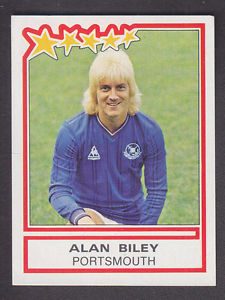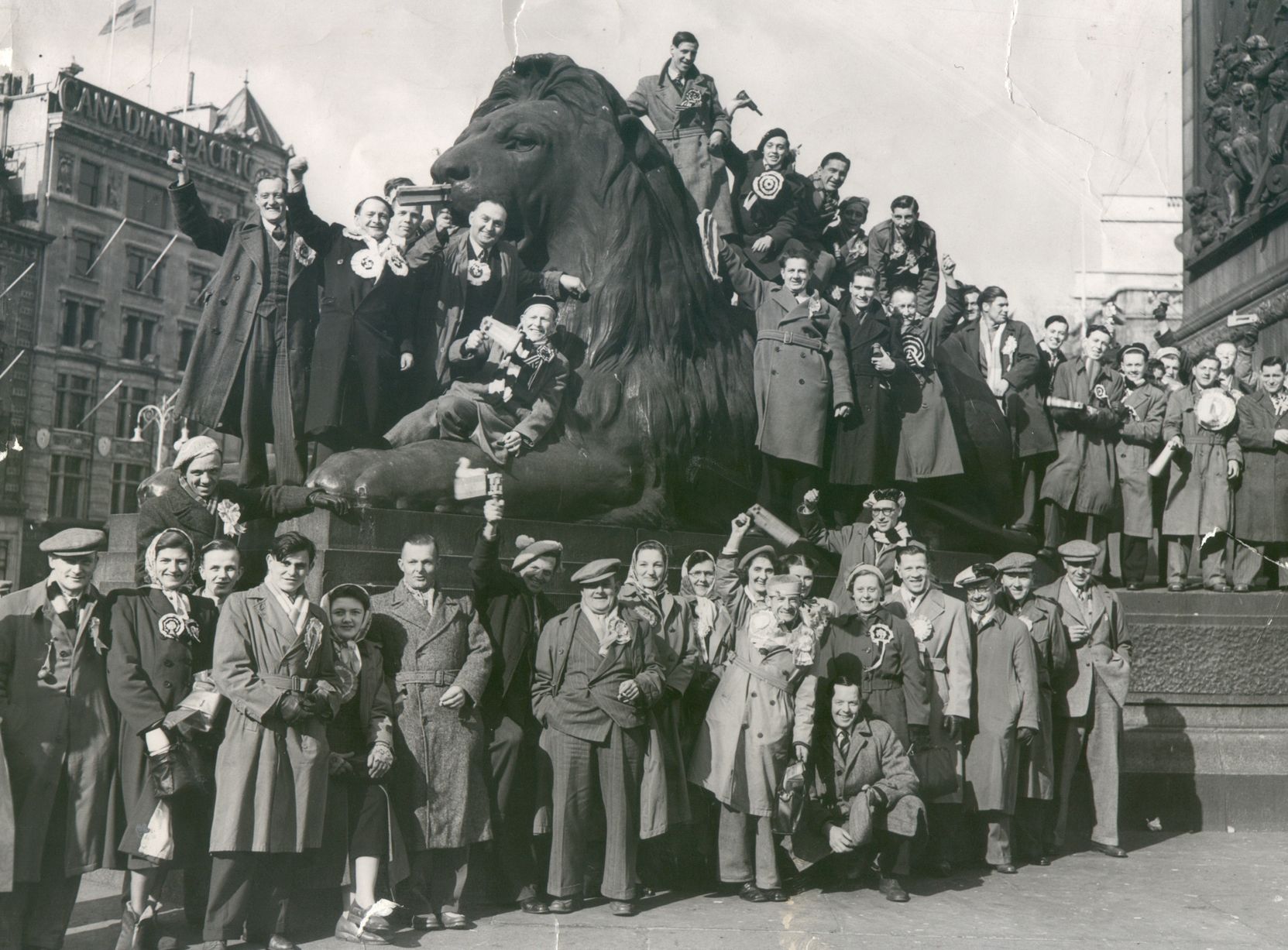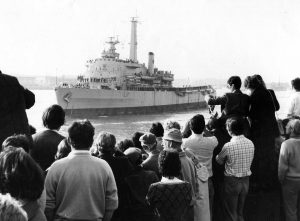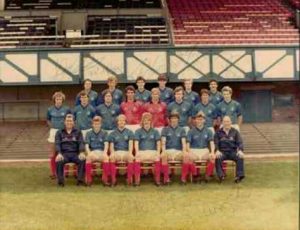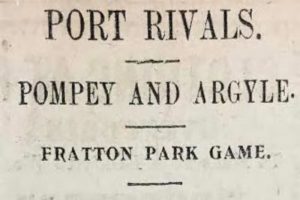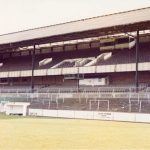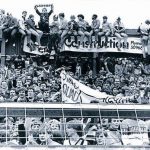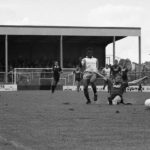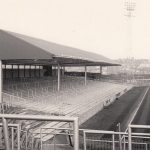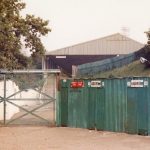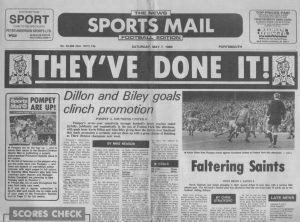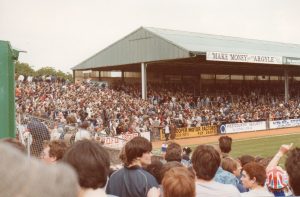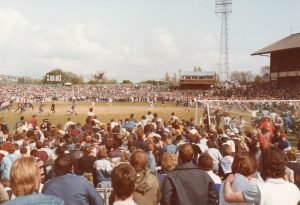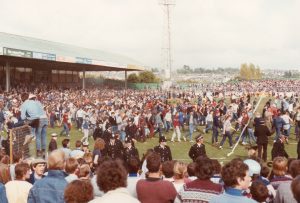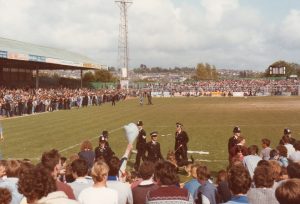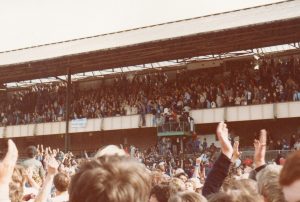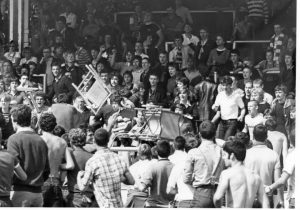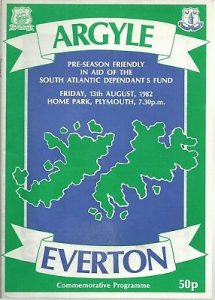
Take your seaside arms
June 1982 was an exciting time. Stumbling into the World Cup via a qualification campaign only sealed in the final match by a scrambled shot from Paul Mariner against Hungary at Wembley, Ron Greenwood’s England side exploded into the tournament with a win over France. Just 2 days previously, Argentina surrendered control of the Falkland Islands following a brief but bloody military campaign that wrested the territory back from Galtieri’s junta, giving Thatcher’s faltering government enough jingo-fuelled impetus to stagger into its second term.
England’s goalscoring performance in Spain reads like a space countdown – 3-1 against France, 2-0 against Czechoslovakia, 1-0 against Kuwait and 0-0 against the hosts and West Germany. Neutralised by injuries to Trevor Brooking and Kevin Keegan, “Ron’s 22” found themselves eliminated without losing a game due to a bizarre and never-repeated two-tier group system. And as summer wore on and the survivors of Maggie’s task force returned to British ports, Plymouth Argyle played Everton in a pre-season friendly at Home Park to raise money for the dependents of those who hadn’t come back.
That game – won 4-2 by the visitors in front of 3,954 – was the curtain-raiser for a season of surprises. In the First Division, Liverpool strolled to a championship win so routine that they lost 5 of their last 6 games and still finished 11 points clear of 2nd place. But elsewhere there were plenty of stories, not least that the League runners-up were Watford in their first season in the top flight. Brighton gained the (at the time) unique distinction of reaching the Cup Final and being relegated. And in Division Two, a thrilling race for third place saw Leicester chip away a substantial Fulham points total to edge promotion on the final day.
Division Three, meanwhile, turned into a rehabilitation race between three famous old clubs. Cardiff, demoted the previous year, went straight back up. Huddersfield, in the Fourth Division two seasons previously, were also promoted. Portsmouth – like Huddersfield, in the bottom tier as recently as 1980 – reinvented themselves under Bobby Campbell, building a free-flowing attacking side around the likes of Neil Webb, Dave Thomas, Ernie Howe and Alan Biley, and powering their way to 91 points in the process.
And Plymouth? Well, as in the previous six seasons, Bobby Moncur’s men never looked remotely like leaving the Third Division in either direction. Since relegation from Division Two in 1977, average crowds at Home Park had declined from 14,000 to just 4,500. And while Argyle had some talented and well-loved players – goalkeeper Geoff Crudgington and full-back John Uzzell were each half-way to more than 300 appearances, while midfielder Kevin Hodges would eventually make over 500 – there was always a sense of torpor under Moncur’s management. The Pilgrims’ record-breaking run to the FA Cup semi-final in 1984 was still a season away, and no-one around Home Park was predicting that sort of excitement any time soon.
Due to Portsmouth’s resurgence, Argyle at least regained the fixture sometimes referred to nowadays as the “dockyard derby”, but then more commonly known as the Battle of the Ports. Plymouth v Portsmouth will never be a derby in the truest sense, as even now the two cities are four hours apart by road. But they were connected by centuries of naval heritage and rivalry. For Plymouth fans of a certain age it was Pompey rather than Exeter who were regarded as the enemy.
As Portsmouth’s promotion bandwagon rolled on through the spring of 1983, their last game of the season at Plymouth began to take on greater and greater significance.
The ground they would visit was big by Third Division standards. Home Park had a nominal capacity of 40,000, with only 4,000 seats (by way of comparison, Anfield at that time held 45,000 and Old Trafford 55,000). The main Mayflower Stand, opened in 1952 to replace a predecessor destroyed by German bombs, stood behind a substantial terrace. Its rear faced the top edge of Central Park, which drops away towards the city centre and the sea beyond. To its right was the open Barn Park End, itself perched above a corner of the park: to the left, the Devonport (colloquially Demport) End, recently re-roofed with a singularly ugly structure which was, however, rather safer than the rickety construction it replaced.
On the opposite touchline was Home Park’s popular pride, the Lyndhurst. A long, low-roofed terrace in the style of the Kippax at Maine Road or the Kop at Huddersfield, this stand accounted for much of the ground’s capacity. Fenced off from the visitors’ enclosure at the Barn Park End but not from the home territory of the Demport, the Lyndy was the jealously-guarded preserve of Argyle’s admittedly rather diminished hardcore. At this stage only the Barn Park End had perimeter fencing, so home fans enjoyed an unencumbered view of whatever action there was.
- Mayflower
- a full Barn Park
- Demport – inside…
- …and out
- Lyndhurst – inside
- …and out
Winning only one game in eight during a faltering March and early April, Portsmouth burst into life after Easter with three victories on the bounce, the highlight a 3-0 triumph at promotion rivals Newport. Orient spoiled the promotion party at Fratton Park on 2 May with a 2-2 draw, but Pompey made no mistake the following Saturday, beating Southend 2-0 in front of 18,000. A 1-0 win over Walsall in midweek meant they needed a point at Plymouth to be crowned champions. The scene was set for a mass exodus of fans to the West Country, and a serious party once they got there. And not all had honourable intentions.
“Something in the region of 10,000 went down there”, remembers one Pompey hooligan’s ghostwriter. “I think anyone who was anyone in Pompey, every thug, every criminal, every loon, everyone’s loon dad who was just as mad, everyone was just there, their aunts, their nans, everyone. An invasion. They didn’t know what hit them.”
Pompey won 1-0, Biley hammering his 22nd of the season into the top corner from a Peter Ellis lay-off after 59 minutes. The goal sparked a pitch invasion, followed by another five minutes from time. When play eventually resumed the referee immediately blew the final whistle. The jury’s out on whether Biley’s strike added to or limited the afternoon’s mayhem – recalled here with thanks to Plymouth fan sites www.argyletd.com and www.pasoti.co.uk .
Proper scary stuff and nothing to be proud of
“Pompey smashed pretty much all of the Co-Op windows on Derrys Cross and other shop windows in Royal Parade way before kick off.”
“They brought 10,000 down. I have never seen so much trouble at a football match. En route they managed to vandalise Stonehenge, and even before the match started to rip down the fences at the Devonport End and charged Argyle fans in the Lyndhurst. They were given both the Devonport End and the Barn Park End, and had fans scattered all over the ground.”
“The stoutly fenced Barn Park End just about safely contained the massed ranks of the well-behaved official coach parties. Meanwhile, our fans had been expelled from the Devonport End and a ramshackle cage assembled for the, shall we say “non-official” travelling fans, some of whom we’d had the displeasure of meeting in town at lunch/beer time.
Needless to say this lasted about five minutes, giving way and spewing thousands of Pompey boys into the Lyndhurst. The usual 1980s get-together/dust-up ensued. I crossed the pitch along with many others to join the home contingent in the Mayflower, from where I saw the mullet-headed Alan Biley score the winner. The only and hopefully the last time I’ll feel like an away fan at Home Park, with an opposition goal celebrated on three sides of the ground.”
“Many Argyle fans left before the kick off, and there were fights all over the ground during the match. From memory they also ripped down the goalposts at the end.”
“Walked in the Lyndy and we had about half of it, with half a dozen coppers between us and the Pompey lot. About 30 mins before kick off Pompey charge, police run and all hell lets loose. Me, brave as you like, hangs around for a bit before scarpering across the pitch to the ‘safety’ of the Mayflower!”
“We hit the bar towards the end of the game, I’ve gone up as most of the ground is in silence! Cue all around giving me evil stares. Ref blew up about 5 minutes early just to get it over with.”
“My pals and I started in the Lyndhurst, and spent the rest of the match in the corner by the floodlight between the Lyndhurst and the Devonport. We left the match five minutes before the end. It was the worst trouble I had ever seen. Thank God we don’t have days like that anymore.”
“I eventually watched it from the ‘tunnel’ under the Grandstand next to the refreshment kiosk (Devonport corner), and legged it when the final whistle went.”
“A couple of hundred Portsmouth fans managed to get in the Lyndhurst. They repeatedly charged the Argyle fans, running from the Devonport end of the Lyndhurst to the Barn Park end of the Lyndhurst. It was anarchy. They punched, kicked, and fought anyone who stood their ground. Eventually the Portsmouth fans were kept up the Devonport End of the Lyndhurst, there was then a huge empty space and a few hundred Argyle fans were up the other end of the Lyndhurst, each penned in by a row of police.”
“I ruined a perfectly good pair of underpants that day.”
“I was only a young lad at the time, and after the second charge I followed a big group of fans over the fence and we ran across the pitch to the safety of the Mayflower. This was before kick off. No one stopped us and in fact we were encouraged.”
“I was on Lyndy. Leaning against a barrier, suddenly found blue and white on either side of me. Got me onto the hallowed turf at least. I can’t remember if clubs had to pay for policing back then, but if we did we should have asked for our money back. Pompey kids with fluffy scarves and rattles were penned into Fortress Barn Park with their mums, while all the skins were in some flimsy cage on Demport, the door of which flew open at the first nudge of a DM.”
“Never witnessed anything like it since, thankfully. Very scary. I think the whole weekend Pompey fans caused trouble in a Plymouth, Torquay and surrounding towns.”
“Fighting started on the Friday and finished on the Sunday.”
“There was utter chaos everywhere. They swamped the place and there was fighting in every part of the ground. They smashed up the goalposts after the game just like the Scots at Wembley. There was a fight outside the Roundabout Pub on Marsh Mills between rival fans before the game.”
“it was mental everywhere. I was stood on the Mayflower and there were random fights all over the place.”
“I was there that day as a young kid. It was mayhem. Remember a lot of lads with PCC donkey jackets battling with Pompey on the Lyndhurst corner near the Devonport End.”
“I was in the Lyndy that day with a mate, we were 13 years old. I can remember the Argyle lads singing ‘ you’re just a bunch of wankers’, and then suddenly total chaos as fights broke out everywhere. We were terrified. I got elbowed in the eye and just wanted to get out of there! I can remember a WPC making sure we were OK and then that ‘saving’ PA announcement that we could move to the Mayflower. We sprinted across the pitch to safety. I remember the song ‘you’ll never take the Lyndhurst’, but they did.”
“I took to hiding up in the rafters of the Lyndhurst.”
“It was carnage. I ended up behind a load of Argyle boys fighting for their lives with backs to the grandstand, and coppers with truncheons trying to get between them. The dog handlers came in eventually.”
“I had the ‘pleasure’ of being there as a young teenager, and it seemed at the time that the fighting was pretty much going off all through the game, especially where I was in the Lyndhurst. Many Argyle fans did try to stand their ground and have a go but were eventually overwhelmed by sheer numbers, I took a few slaps and was chased all over the shop before managing to get out of the ground. There seemed to be thousands of Pompey fans outside as well!”
“I was in the Lyndhurst and it all went off several times. Everybody was everywhere because the segregation had failed completely, and once the big bundle at the start finished the rest of the match saw little groups picking out their opponents, chinning them and then legging it into the chaos. In retrospect I think the game should have been abandoned, but that would probably have made things even worse. It’s a miracle nobody was killed that day. Proper scary stuff and nothing to be proud of at all.”
“Some scars still throb when Portsmouth come to town.”
“There were Pompey fans randomly punching and kicking people then scarpering. One poor bloke was smacked across the back of the head with a piece of wood, and the sight of another guy being helped out of the ground, spitting his teeth into a plastic cup, has never left me.
“The second half ended with a mass (but thankfully peaceful) Pompey pitch invasion and I was delighted to get back on my bus in one piece. That is until a group of Pompey fans surrounded our bus before opening the doors from the outside, piling on, throwing a few random punches and jumping off again.”
“That’s the big difference with football violence these days. On the whole it’s organised and somewhat controlled between just those that want to fight. Back in the 80s you could be attacked out of the blue at any moment, inside the ground or outside.”
